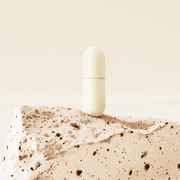Science Behind Akkermansia
What is Akkermansia

Willem M. de Vos.
The discovery of "Akkermansia muciniphila" stems from an in-depth study of the human gut microbe.
The strain was discovered by Professor "Willem M. de Vos.", a microbiologist at Wageningen University in the Netherlands, and his research team.
In 2004, the research team isolated Akkermansia muciniphila from the human gut for the first time and described its properties and functions in detail.After the discovery of the bacterium, scientists gradually realized its important role in gut health and began to study it extensively.
Through follow-up studies, it was found to play an important role in maintaining the integrity of the intestinal mucosa, regulating the immune system and improving metabolic function.



Our scientific research team focuses on the synergistic effect between the various ingredients in the formula, trying to create truly scientific and efficient products.
Our Akkermansia contains 1 billion AFU Akkermansia muciniphila Akk11 per capsule, which is 2-10 times more than many similar products on the market.
Additionally, there is a synergistic effect between 9 billion AFU Lactiplantibacillus plantarum Lp90 and Akk11.
In addition, two natural prebiotics were added: inulin and oligofructose.
How our product works on the Body
Improved Gut Health & Metabolic Health









